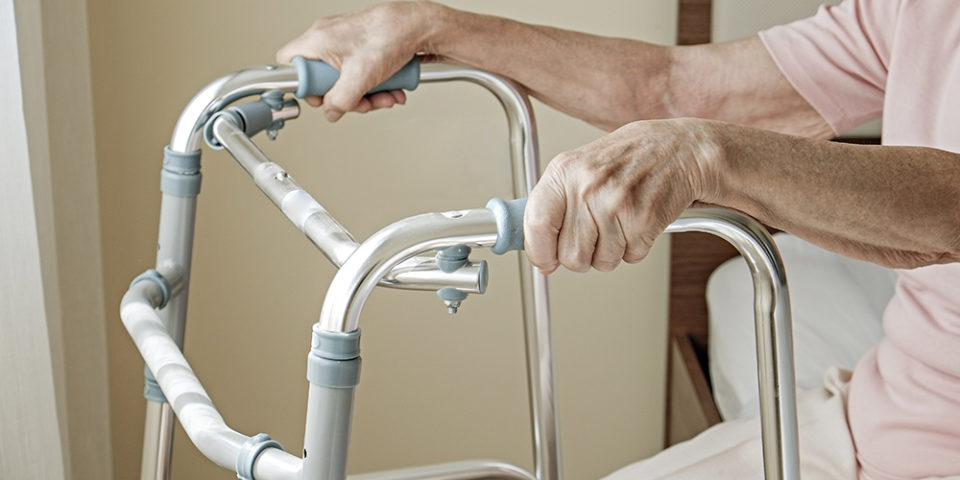6 ways seniors can prevent falls and maintain independence
To most seniors, remaining in their own homes and communities and avoiding nursing home placement is an important part of staying as independent as possible. Unfortunately, a fall can complicate these efforts by leading to serious injury and even death. Over 29,000 people 65 and older die each year from falls.
“The good news is that there are ways seniors can prevent falls to stay safe and healthy and maintain independence,” said physical therapist Lynn Johnson.
What are common reasons seniors are injured in falls?
Falls are often caused by hazards that can be easy to fix, such as:
- Poor vision or hearing
- Side effects of certain medications
- Foot pain or poor footwear
- Improper use of assistive devices
- An unsafe home environment
Whether an injury occurs or not, falls can cause a number of problems for seniors, including limiting the ability to participate in activities or interact socially. They can also cause an increase in fear, depression, social isolation and feelings of helplessness.
Falls aren’t inevitable as you age, but most falls can actually be prevented.
Six ways seniors can prevent falls
- Be aware. Don’t rush to answer the phone, use the bathroom before the need becomes urgent and pay attention to your environment. A fall from an uneven sidewalk or higher-than-expected curb can sideline you for weeks, months and even longer.
Be especially careful when trying to do two things at once. Falls are much more likely when your attention is not on where you are walking, especially when the surface is uneven. Stand up slowly and be sure to have your bearings before walking.
If you feel dizzy, uneasy or off balance, sit back down and wait for the feelings to pass before standing. Be sure to tell your doctor if this happens often. - Check your home for hazards. Remove any tripping hazards in the home, such as area rugs, mats, extension cords and general clutter. Make sure to have proper lighting, and don’t try to maneuver your way around in the dark. Illuminate your way from the bedroom to the bathroom with night lights.
Place a large bathmat outside the shower or tub to absorb water and consider getting a shower chair. Adding grab rails in the shower and beside the toilet, as well as a raised toilet, can also help reduce fall risks. - Monitor medications. Be aware of the side effects of your medications and be sure to take them correctly. Fill all prescriptions at one pharmacy so the pharmacist can keep on top of any interactions that may cause a problem. Talk to your primary care doctor about all your medications, even over the counter ones, to prevent any unintended interactions and recognize possible side effects.
- Choose footwear wisely. Ditch the heels, shoes with slippery soles, clumsy clogs and worn-out footwear. Treat yourself to shoes that provide support and comfort, such as those designed for walking. Socks without traction, especially on wooden stairs, can be a recipe for disaster.
- Know when it’s time for an assistive device. When you find yourself holding onto the furniture or grabbing hold of family members or friends as you make your way around a room, it’s time to purchase an assistive device.
Other signs include taking short, shuffling steps, looking at their feet while walking and becoming exhausted after covering a short distance.
In selecting an assistive device, whether it is a cane or a rollator, involve a professional so you know you’re getting the right device, and one that is fitted for your needs. - Take time for exercise. Ongoing exercise is key to maintaining strength, flexibility and balance. Some basic exercises that are helpful include mini-squats, toe raises, heel raises, kicking back, and stepping out to the side – all while holding onto a steady surface. Taking an exercise class designed for older adults is a great way to find social connection and keep moving. Even a little movement can go a long way toward preventing a fall.
Find the care you need, close to home
Our primary care physicians provide well visits and everyday care when you need it with compassion and expertise.
Find Primary Care Near You

